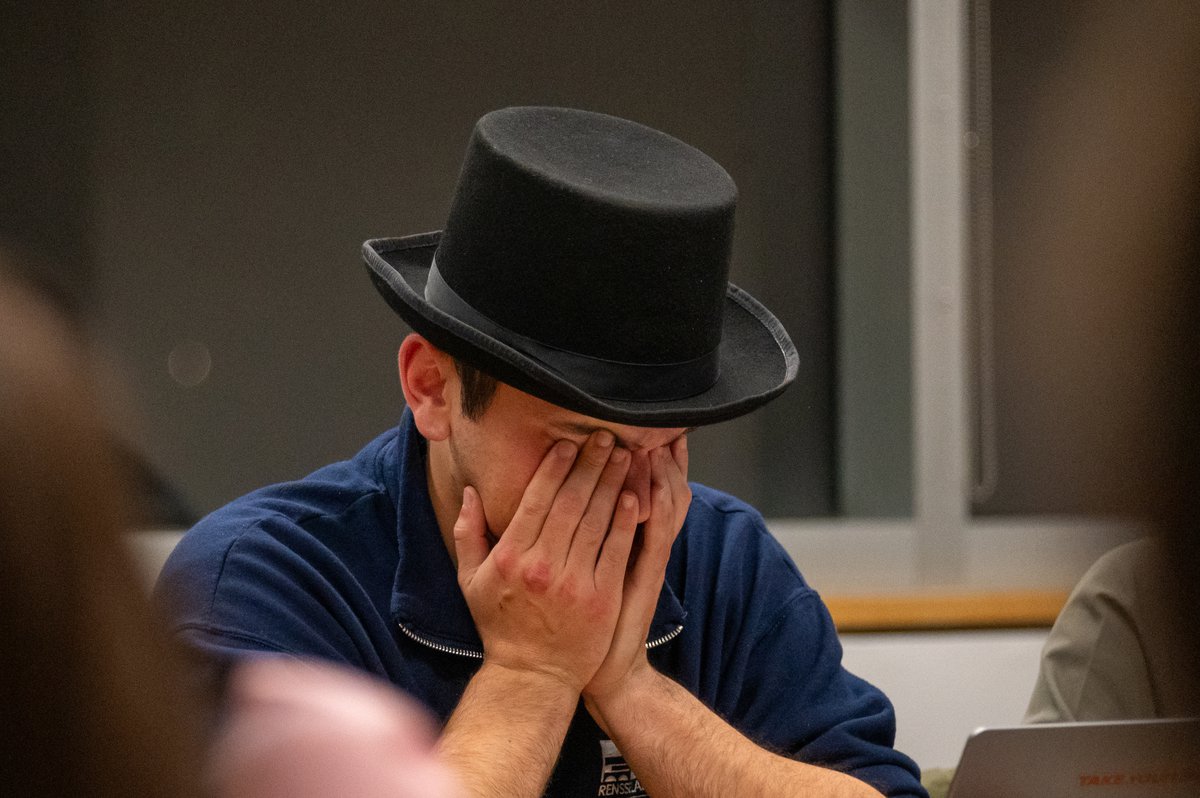Student Senate has a Fireside Chat with the Provost

In a special Fireside Chat, Provost Dr. Rebecca Doerge shared insights from her first year at Rensselaer Polytechnic Institute, discussing her experiences, key leadership transitions, and the evolution of student experience on campus. Doerge, who assumed the role of Provost 14 months ago, reflected on the growth and challenges of her tenure, offering a candid view of the administrative changes and initiatives shaping the future of RPI.
One of the most notable changes under her leadership has been the restructuring of academic and student life services. "It’s going well," she said, citing the integration of student life, academics, and enrollment under one umbrella as a key step toward improving the student experience. Leadership changes, including the appointment of a new Vice Provost of Student Experience Robert Hradsky and a new Dean of Students Ryan Keytack, have helped align the administration more closely with students’ needs. She also spoke about her efforts to improve communication between administration and students, a theme that resonated throughout the conversation. "Open communication is key," Doerge emphasized, underscoring the importance of fostering trust and transparency in her role.
The Provost discussed several initiatives aimed at addressing student concerns, including updates to the add/drop policy and efforts to improve mental health support. She explained that changes to the policy were made to improve clarity and to ensure that students had sufficient time to make informed decisions about their courses without jeopardizing financial aid. She also emphasized the importance of communication around mental health, noting that RPI is taking steps to integrate mental health services with academic support to help students better manage their well-being alongside academic pressure.
A question from Grand Marshal Vivian Rost-Nasshan ’26 about the use of AI in academic work was addressed by Doerge, as she explained that it is still uncharted territory, and the Vice President of IT John Kolb is currently drafting a governance policy for the institution. Recently, at a National Educational Advisory Board meeting in Washington, DC, a group of 50 university presidents, provosts, and Chief Financial Officers discussed the issue and concluded that it's too soon to establish a definitive policy. At RPI, faculty are asked to clearly address their AI usage policy in their own syllabi.
The conversation also touched on RPI's ongoing efforts to evolve academically, particularly in the humanities and social sciences. "RPI is a small university, but we’re offering a modern take on the humanities," Doerge said, highlighting new faculty appointments and the expansion of programs like the Games Simulation Arts and Sciences to become a department by next Fall called the Games and Experiential Media Gym. This reflects her broader goal to balance RPI's tech-driven focus with a more diverse academic environment.
While optimistic about these changes, Doerge acknowledged the challenges RPI faces, particularly around enrollment and infrastructure. The university is working to market itself more effectively to prospective students, partnering with platforms like Niche and utilizing AI-driven recruitment tools. She also discussed ongoing efforts to address aging campus facilities, noting that renovations are costly, but essential for RPI’s long-term growth.
Engagement with the RPI alumni community and the city of Troy has also been a priority. Doerge mentioned a growing focus on strengthening alumni relationships and improving connections between the university and local leadership.
In new business, Chair of the Student Life Committee Ria Massoni ’25G addressed concerns brought to her attention regarding anonymous reporting of incidents and the importance of fully investigating them under the Good Samaritan policy. It was noted that students are hesitant to report incidents due to fears of retaliation or not being taken seriously, and the administration was encouraged to clarify and promote the policy to ensure transparency and encourage reporting without fear of repercussions.
The discussion also covered issues with the handling of anonymous reports, including confusion about which reporting forms would be investigated, and the potential for false reports leading to unjust consequences. Concerns were raised about the need for proper procedures and clarity around how anonymous reports are treated, as well as the legal obligations under the Clery Act, a federal protection law that requires the university to investigate and report such incidents. A motion to address the issues was discussed, leading to a closed meeting for further deliberation. During the closed meeting, the motion passed 18-1-0.
Treasurer Colette Minor ’26 presented the FY25 budget standing at $6,790. Various expenses, including uniforms, project expenditures, and leadership development, totaled to $8,132 for the FY26 budget. Discussions followed on the need for formal student leadership training, with suggestions for a retreat or external conferences, though concerns were raised about the financial cost and coordination challenges due to past tensions between Senate and Executive Board.
This meeting was held on November 18, 2024. The Senate meets every Monday at 8 pm in the Shelnutt Gallery.

 Student Senate
Student Senate